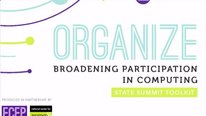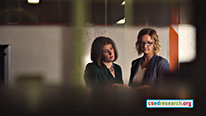ERIC HSU
SF CALL
NSF Awards: 1649277
This is an update on the third year of progress of the SF CALL project. Our mission is to nurture equitable K-20 computer science career pathways within public education systems. We pursue the following strategy.
Objective 1: At the K-12 level, SFSU supports SFUSD in becoming the first large urban school district to implement a preK-12 CS curriculum in their CS for All initiative.
Strategy 1.1. SFSU faculty work with SFUSD staff to adapt curricula and to deliver PD to district teachers.
Strategy 1.2. Pedagogical support for CS majors who serve as classroom assistants directly in district middle school and High School CS classes.
Objective 2: Increase success for all groups in SFSU college CS coursework.
Strategy 2.1. Innovative Supplemental Instruction workshops for difficult bottleneck CS courses. These workshops are taught by pairs of near-peers, successful upper-division students.
Strategy 2.2. SFSU Metro Academies provide intensive mentoring for at-risk students in CS related majors at SFSU and City College of SF
Strategy 2.3. PINC (Promoting Inclusivity in Computing) creates new CS career pathways. Revise the pedagogy of CS courses by adding more problem-solving and design projects.
Objective 3: Partner across sectors to improve student job opportunities.
Strategy 3.1. SFSU partners with SF Chamber of Commerce & South SF City to develop industry internships for CS students.
Strategy 3.2. SFSU creates CS supplemental authorization for in-service and pre-service teachers.
SF CALL
NSF Awards: 1649277
This is an update on the third year of progress of the SF CALL project. Our mission is to nurture equitable K-20 computer science career pathways within public education systems. We pursue the following strategy.
Objective 1: At the K-12 level, SFSU supports SFUSD in becoming the first large urban school district to implement a preK-12 CS curriculum in their CS for All initiative.
Strategy 1.1. SFSU faculty work with SFUSD staff to adapt curricula and to deliver PD to district teachers.
Strategy 1.2. Pedagogical support for CS majors who serve as classroom assistants directly in district middle school and High School CS classes.
Objective 2: Increase success for all groups in SFSU college CS coursework.
Strategy 2.1. Innovative Supplemental Instruction workshops for difficult bottleneck CS courses. These workshops are taught by pairs of near-peers, successful upper-division students.
Strategy 2.2. SFSU Metro Academies provide intensive mentoring for at-risk students in CS related majors at SFSU and City College of SF
Strategy 2.3. PINC (Promoting Inclusivity in Computing) creates new CS career pathways. Revise the pedagogy of CS courses by adding more problem-solving and design projects.
Objective 3: Partner across sectors to improve student job opportunities.
Strategy 3.1. SFSU partners with SF Chamber of Commerce & South SF City to develop industry internships for CS students.
Strategy 3.2. SFSU creates CS supplemental authorization for in-service and pre-service teachers.
-
 Preparing Next Generation STEM Teachers
Preparing Next Generation STEM Teachers
Ed Geary
-
 Broadening Participation in Computing State Summit Toolkit
Broadening Participation in Computing State Summit Toolkit
Sarah Dunton
-
 csedresearch.org: Resources for K-12 Computing Education
csedresearch.org: Resources for K-12 Computing Education
Adrienne Decker
-
 Broadening Participation in PreK-12 STEM Education
Broadening Participation in PreK-12 STEM Education
Catherine McCulloch
-
 A Kite Tale - Reaching New Heights in STEM for All
A Kite Tale - Reaching New Heights in STEM for All
Matthew Cass
-
 The Malate Dehydrogenase CUREs Community (MCC) Project
The Malate Dehydrogenase CUREs Community (MCC) Project
Ellis Bell
4445 Views
Continue the discussion of this presentation on the Multiplex. Go to Multiplex
4445 Views
presentation
has been viewed
Related videos you might be interested in...
-
 Preparing Next Generation STEM Teachers
Preparing Next Generation STEM Teachers
Ed Geary
-
 Broadening Participation in Computing State Summit Toolkit
Broadening Participation in Computing State Summit Toolkit
Sarah Dunton
-
 csedresearch.org: Resources for K-12 Computing Education
csedresearch.org: Resources for K-12 Computing Education
Adrienne Decker
-
 Broadening Participation in PreK-12 STEM Education
Broadening Participation in PreK-12 STEM Education
Catherine McCulloch
-
 A Kite Tale - Reaching New Heights in STEM for All
A Kite Tale - Reaching New Heights in STEM for All
Matthew Cass
-
 The Malate Dehydrogenase CUREs Community (MCC) Project
The Malate Dehydrogenase CUREs Community (MCC) Project
Ellis Bell

Eric Hsu
Professor
I have even more of an update on this project. The first two years were supported by the NSF INCLUDES grant. These years triggered a number of collaborations on campus, which have resulted in three recent grants:
- NSF INCLUDES Alliance with CAHSI (an action network for improving CS teaching in college and K-12)
- NSF CS4ALL with SF Unified School District (continuing PD for CS teachers)
- NSF IUSE to support the PINC project (CS mentoring and minor for women and URMs)
Abby Funabiki
Abby Funabiki
Associate Executive Director
Awesome to hear about the different partners supporting the entire pathway! Does Google (or other industry partners) play an ongoing role with SFUSD schools and students after the summer boot camp? Seems like a fantastic opportunity for SFUSD to offer students internships and for industry partners to nurture and recruit local talent.
Jared O'Leary
Eric Hsu
Professor
Thank you for the supportive words.
Google has been supportive of SFSU students through our CAHSI alliance, but isn’t directly involved with SFUSD through this project. As far as I know, Salesforce has been much more involved with SF Unified.
Jared O'Leary
Abby Funabiki
Lisa Miller
Teacher
Thank you for sharing your video! It's interesting to hear about the full CS Pathway you have developed. Have you had a chance to determine if more students in the SFUSD are taking higher level CS classes in high school, and/or choosing to major in CS in college now that there is a K-12 CS curriculum? Are there other impacts you have seen?
Eric Hsu
Professor
Those are great ideas for tracking. We don’t have those numbers, but they are the kinds of retention stats we are interested in. It’s actually amazingly hard to track students across education systems and it will take some concerted efforts and openness from data managers.
Lisa Miller
Lisa Miller
Teacher
Thank you for your response!
Quinn Burke
Senior Research Scientist
Appreciated this excellent video - we are working on K-12 pathways with 3 districts across the states of IL, IA, and AL, and K-12 alone is a challenge so appreciate the reach of this work which extends to post-secondary with SFSU and then the workplace with the Chamber. On this note, what is the role of the Chamber on this work? Are they helping facilitate the link between K-12 schools or working with SFSU here (or both)?
Eric Hsu
Professor
Thank you for the note. Your work sounds way more complex — cross-district, with 3 different standards, yikes.
The Chamber’s work has been in brokering relationships with companies for internships for the college students, and between the school district and businesses for financial and volunteer support.
Jared O'Leary
Glad to see the amount of support from, and collaboration between, various organizations. While San Francisco is well known for supporting technology, CS, coding, etc., it's also known for resistance from community members. I'm curious about the students and parents who are uninterested in CS careers. What kinds of questions or concerns have been voiced from people who are uninterested in CS careers? In addition to promoting careers, do you also promote or discuss how CS might be useful for people interested in CS for leisure (e.g., I modded a video game to propose to my wife). I ask as someone who is in strong support of your project and out of curiosity with how you have/might respond to such concerns (which were voiced by some of the kids/parents in a district I previously worked in).
Abby Funabiki
Eric Hsu
Professor
Hello, thanks for the interesting question. I’ve not heard anything negative from any parent about providing CS curriculum in school. I think parents appreciate their students getting exposed to it so they can have a fair shot at developing an interest and love for it.
I know there is some concern about how wealthy technology workers are changing the character of SF and making neighborhoods unaffordable for long time residents and businesses. There has also been a medium term pattern of decline of school age children in the city, possibly related to the gentrification.
But again, I’ve not heard of any parental negativity around CS in schools.
Abby Funabiki
Jared O'Leary
Jared O'Leary
That's great you haven't had any pushback from parents! I appreciate what you're doing and I'm glad to hear the parents of children you are serving also appreciate your efforts!
Alex Gurn
It's great to see this work showcased! I am wondering about key takeaways you've drawn regarding how to prepare teachers to lead CS instruction. Also, where can we access your research on this work?
Eric Hsu
Professor
Hello, thanks for the encouragement. We’ve done evaluation style research on the work, but don’t have enough time with students in the program to report on their progress along the pathway.
The contrast is between no PD for CS teachers and what we’re doing, so we’re confident this is an improvement. But in the future, tracking student outcomes should help us improve our work.
Further posting is closed as the showcase has ended.